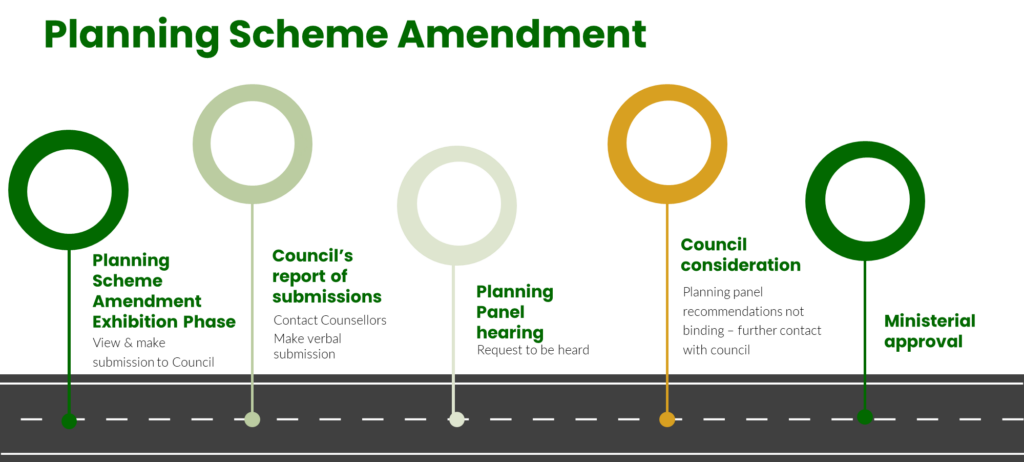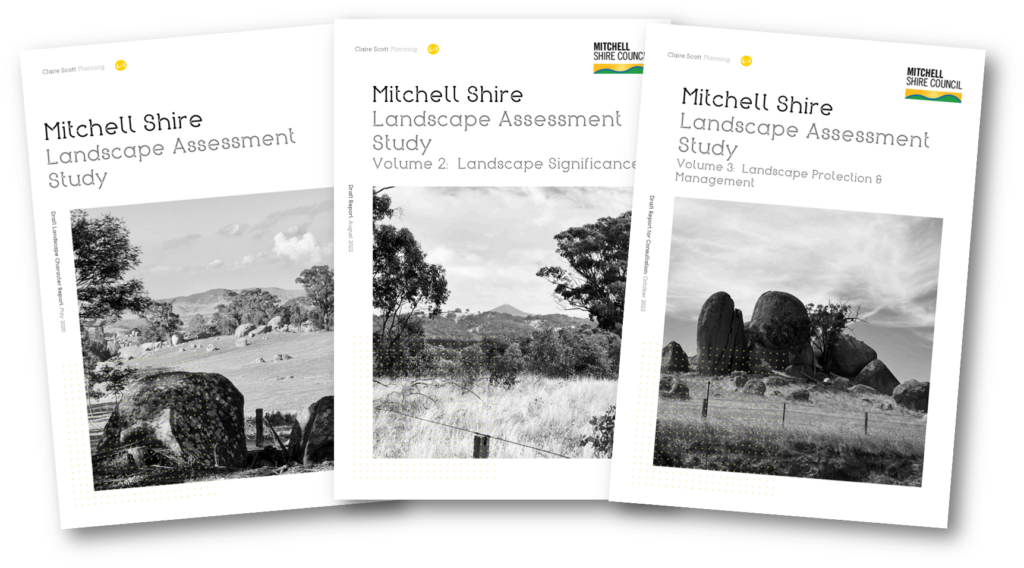On August 19, 2024, Mitchell Council narrowly endorsed the Landscape Assessment Study (LAS) with a close 4-3 vote. This endorsement proceeded despite a flawed consultation process and sustained community opposition. The approval was subject to several last-minute conditions that seem more like superficial attempts to placate concerned landowners, introducing further uncertainty rather than addressing the core issues.
You can view the livestream recording of the Council meeting here (commencing at 55:43)
You can read our initial reaction to the meeting, written the morning after the vote and before we’d even seen the text of the resolution passed.
The Landscape Assessment Study recommends changes to the Mitchell Planning Scheme, including the introduction of three new Significant Landscape Overlays (SLOs). The process to amend the Planning Scheme is lengthy, potentially spanning two or more years, and will involve numerous steps. Throughout this time, community members will have opportunities to make submissions, present evidence before an independent planning panel, and lobby the State Government Minister, who must ultimately sign off on the planning scheme amendment.
Council’s conditional endorsement included provisions for a benchmarking study and an impact assessment. However, it remains unclear how these reports will influence the planning scheme amendment process.

Protect Our Farms will remain actively involved at every stage, ensuring that the voices of farmers are heard and advocating against changes that prioritize scenic views over agricultural livelihoods.
The resolution to endorse the Landscape Assessment Study was amended at the last minute to include several conditions. Councillor Fiona Stevens claimed these conditions addressed farmers’ concerns, stating:
“The points that I've raised in this amendment are exactly their [farmers'] concerns.”
The amendments reflect a fundamental misunderstanding of our concerns and demonstrate a superficial attempt to appease us without genuine engagement.
Contradictory amendments: Last-minute changes are
illogical and fail to resolve key issues.
Selective exemptions: Native vegetation permit clause
to now link to 2 exemptions but excludes at least 16 others including grazing
and emergency works
Misguided benchmarking: Benchmarking study undermines
the specific needs of diverse farms.
Vague permit guidelines: New language on agricultural
activity lacks clarity and precision.
Undermined process: Endorsing the LAS before addressing consultation flaws and impact assessments undermines the entire process.
Mitchell Council engaged Claire Scott Planning, an external firm, to conduct the Landscape Assessment Study. The study was conducted between March 2020 and May 2024 using a methodology developed by Claire Scott Planning’s principal, Claire Scott. Notably, this methodology has been criticized by the Victoria Planning Panel for not referencing any established guidelines or industry standards.
The study prioritizes views and vistas, considering agriculture and primary production relevant only in the context of scenic landscapes. It recommends new permit restrictions that impact agricultural activities, yet fails to provide any impact assessment for these recommendations.
The Landscape Assessment Study consists of three volumes:
